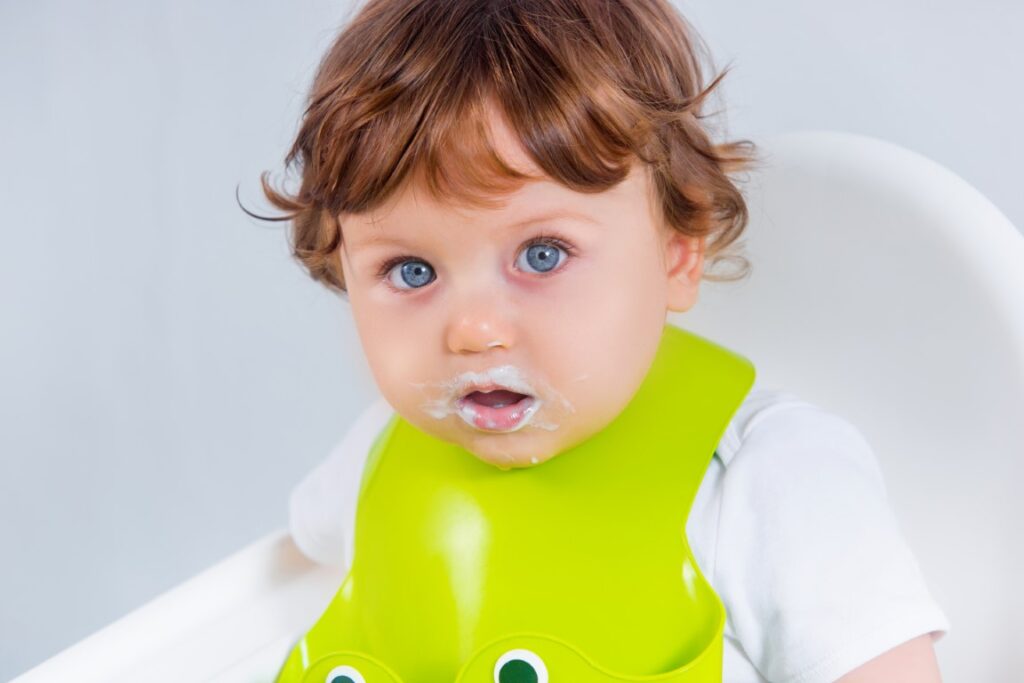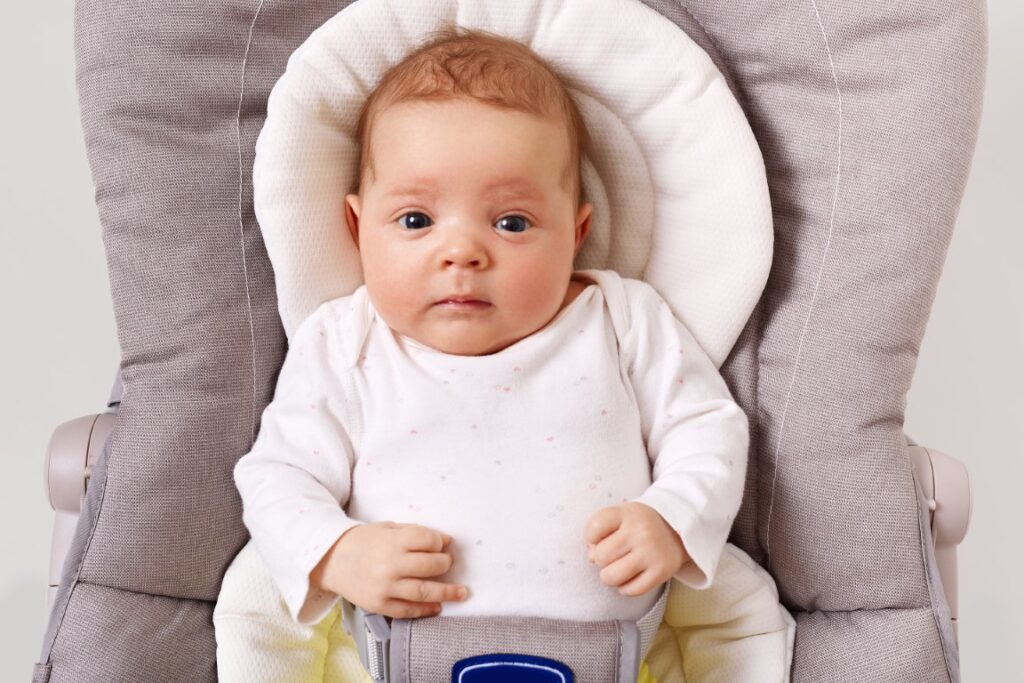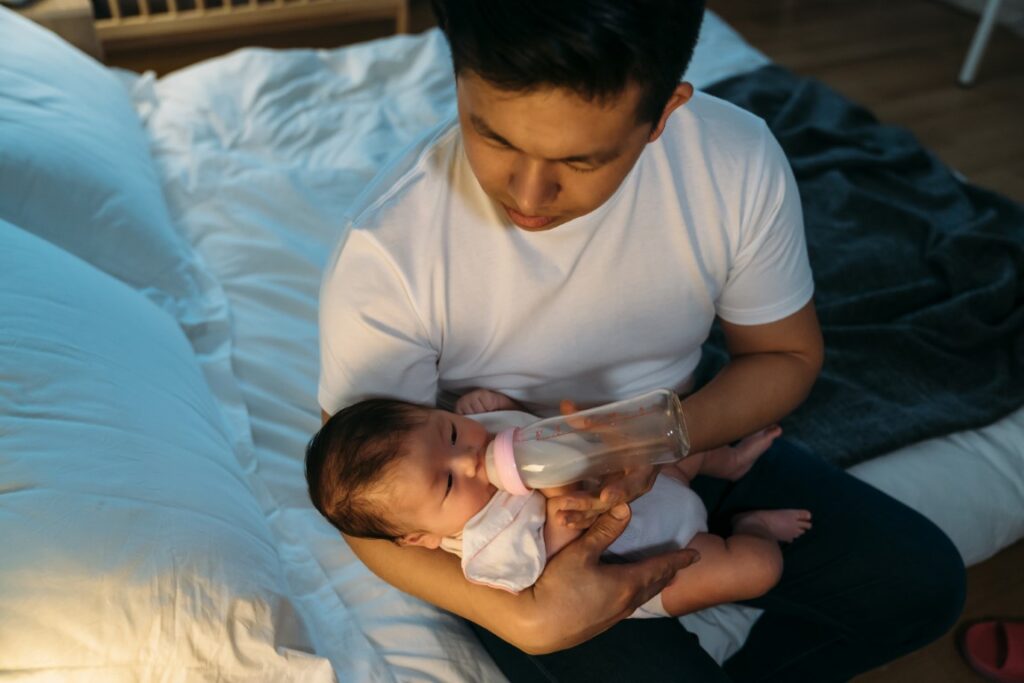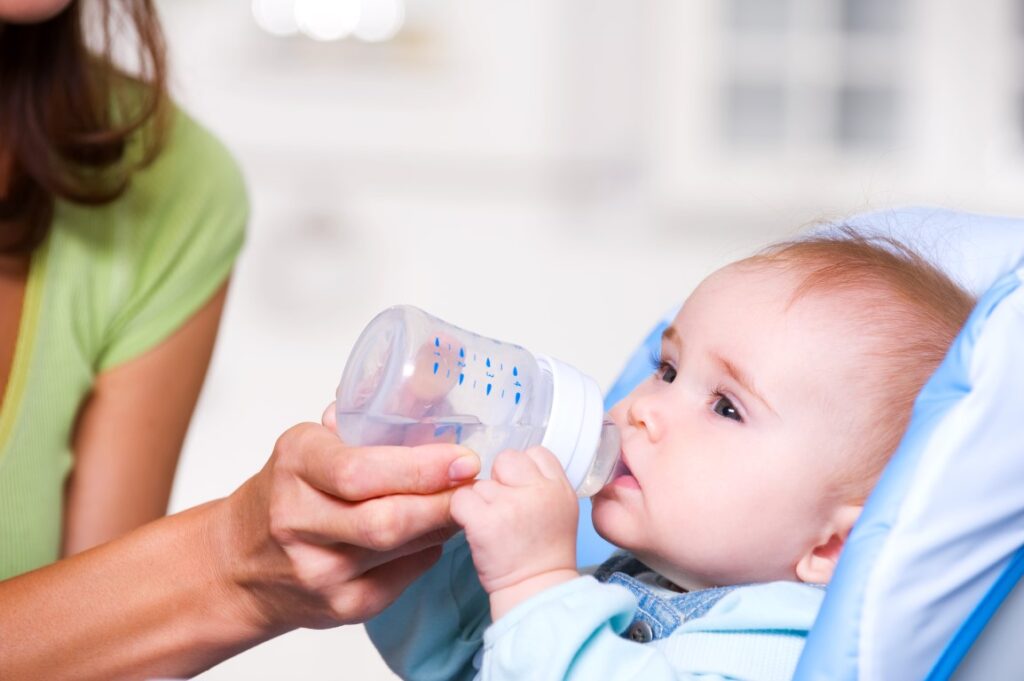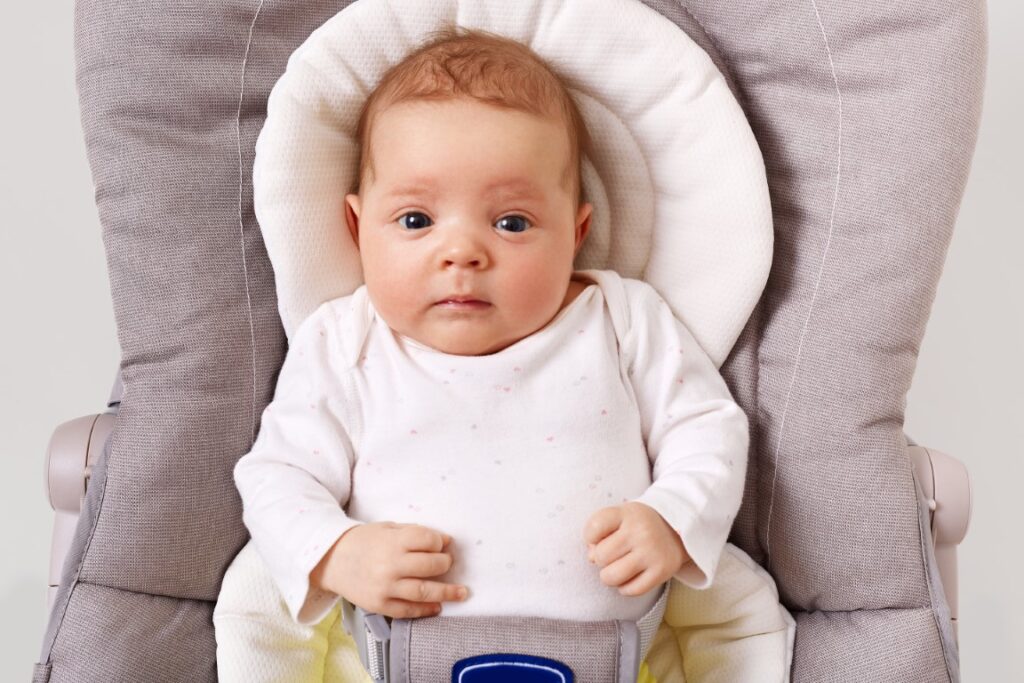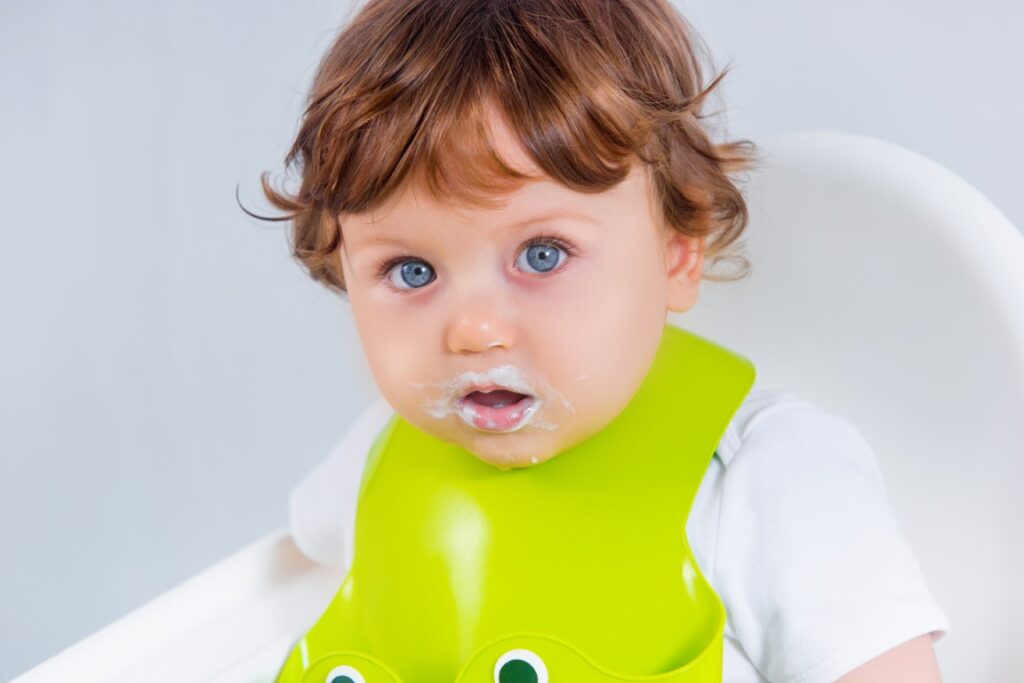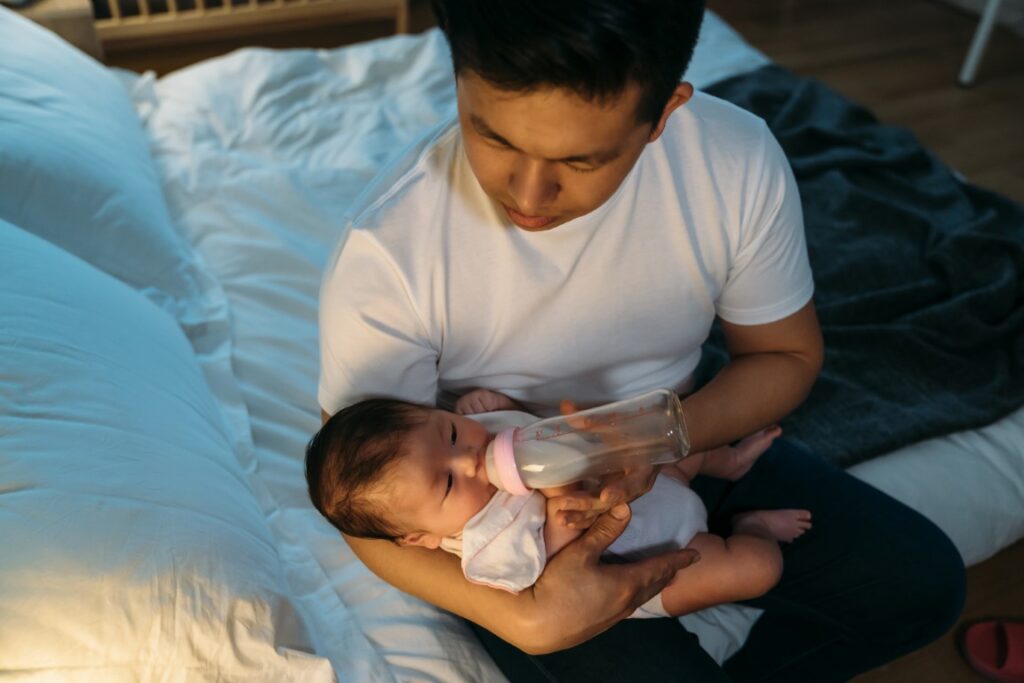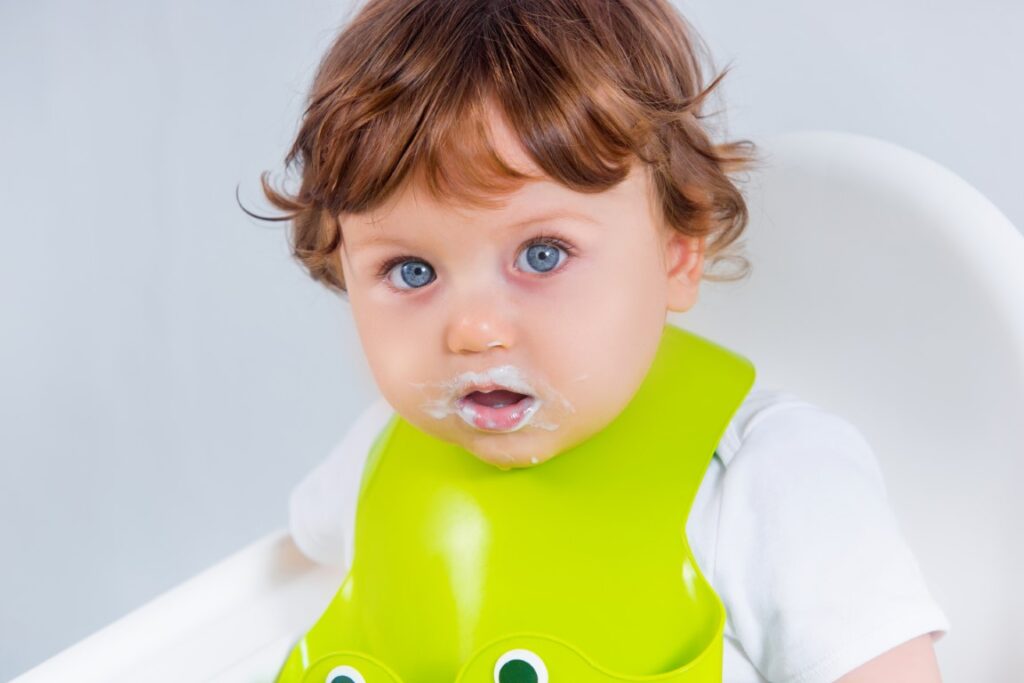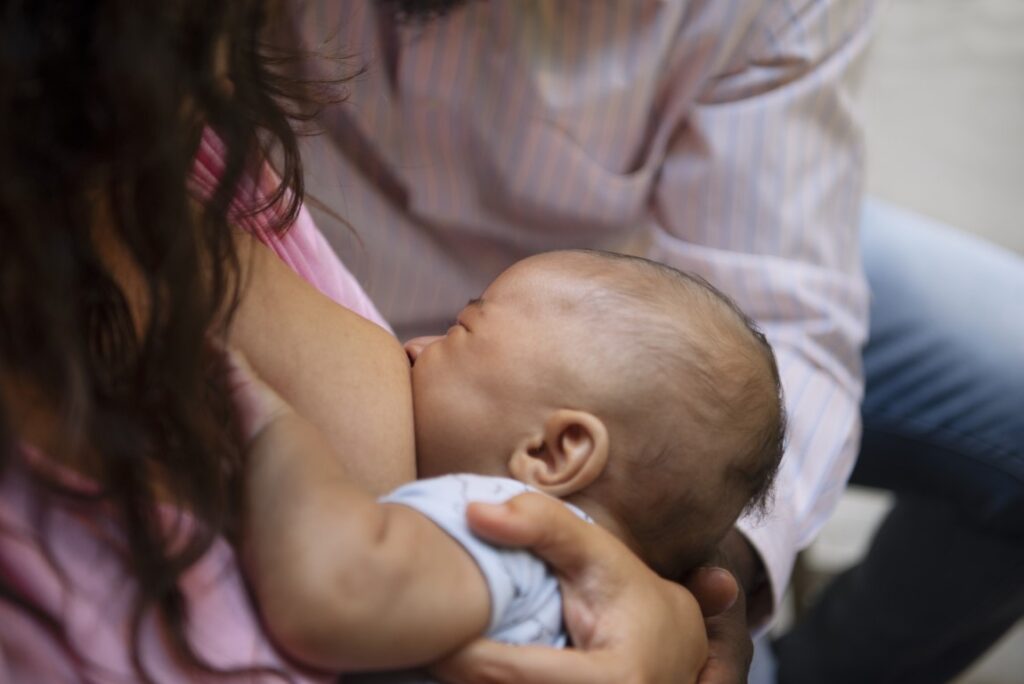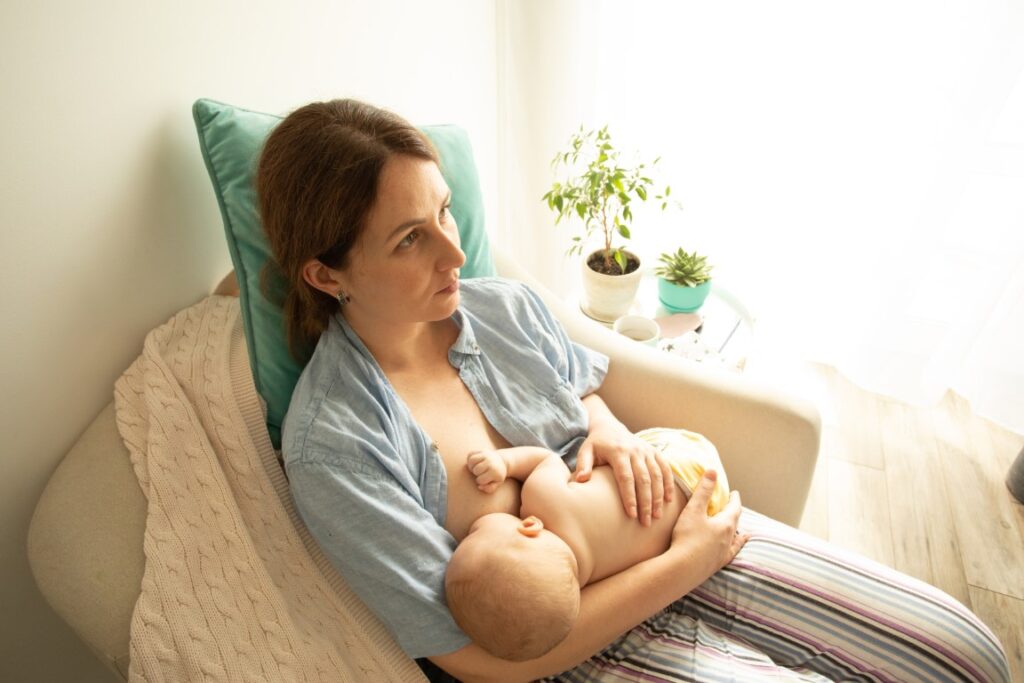Types of vomiting
There are several types of vomiting, and while the outcome is the same, the causes vary:
a. Small quantities of milk coming up after a feed are known as possets.
b. Reflux occurs when the baby’s stomach’s top valve is too loose to keep milk within. Because a baby’s esophagus (food pipe) is short, vomiting might happen when the valve opens and there is just a little gap between it and their mouth.
c. Forceful vomiting is known as projectile vomiting. It is a sign of a blockage in the baby’s stomach. Take your child to the doctor if they have projectile vomiting after multiple feedings.
What causes infants to throw up?
Mild vomiting frequently happens in newborn babies because they are still getting acclimated to drinking, digesting, and excreting milk. It doesn’t take much milk for a newborn to fill up and vomit the surplus milk because their stomachs can only retain an average of 20 milliliters.
How can I determine whether my baby is ill?
Vomiting on its own might give comfort. But, your baby has to be seen by a doctor if they exhibit any of the following symptoms: fever, poor feeding, diarrhea, rash, or any other signs.
If your infant appears to be in good health and is alert and happy, you may only want to keep an eye on their vomiting to observe when and how often it occurs. But keep in mind that the quantity of a baby’s vomit may be difficult to estimate and may seem greater than it actually is.
Difference between reflux and throwing up?
Reflux-related vomiting typically happens after feedings. It could be painless or painful. Some reflux-affected babies routinely “throw up” after and in between feedings. It’s important to consider how your baby’s vomiting affects them.
You might just try altering the quantity and frequency of feedings if your baby appears content, healthy, and gaining weight. Take your infant to the doctor if they appear to be in discomfort or are not developing normally. Your pediatrician may prescribe medication for reflux.
How can I manage my baby’s vomiting?
After vomiting, most babies recover quickly and don’t require any particular care. They may become hungry again right away, or it may take some time for them to feel the need to eat again. But a doctor has to examine them if they frequently vomit and exhibit other symptoms.
Altering the frequency and position of feedings can sometimes prevent vomiting. Even if your baby vomits, it’s still crucial to lay them according to the safe sleeping rules. Always lay your baby on their back; it also helps prevent choking.
When should you consult a pediatrician?
You should consult the doctor if your baby’s vomiting isn’t stopping or becoming worse, your baby is exhibiting other symptoms of sickness, they look drowsy, sluggish, and uninterested in eating, and there is blood or bile in their vomit.

